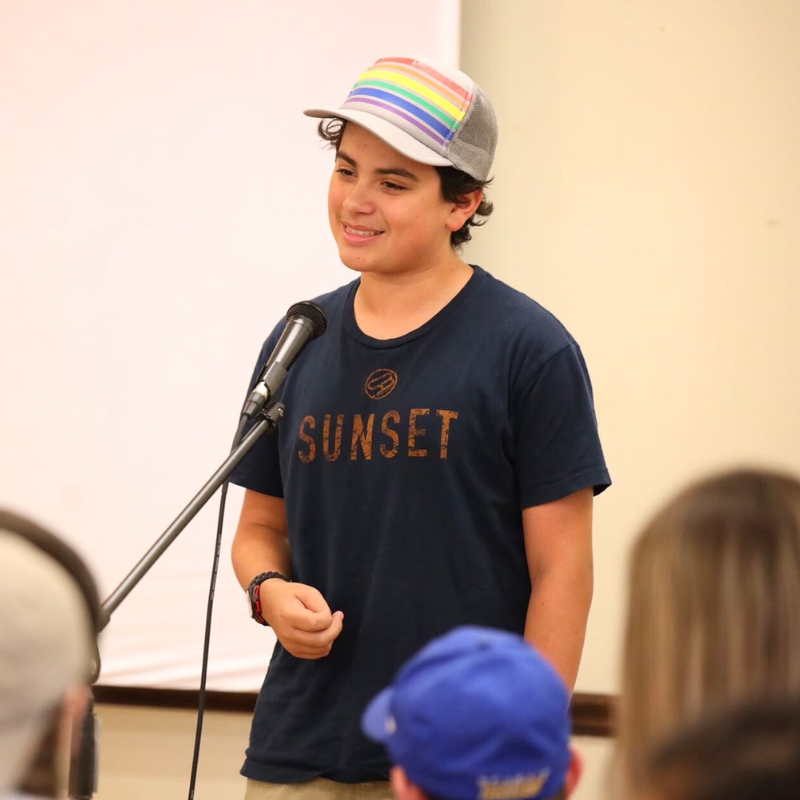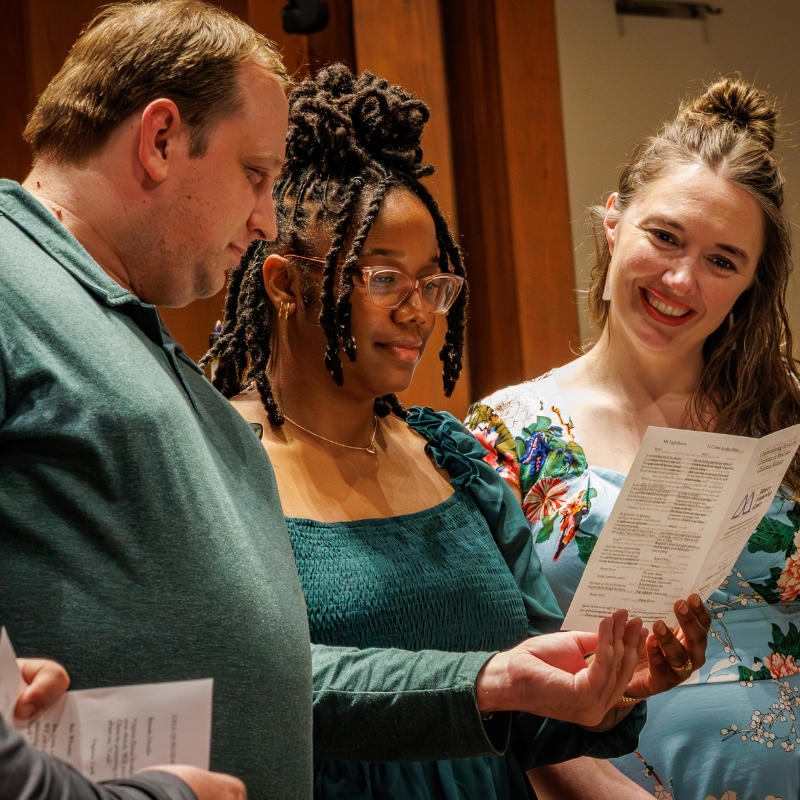
Have you ever experienced a child learning to read? There’s something almost magical about seeing their hard work bear fruit. In those moments of pause—when they encounter an unfamiliar word—you can see the gears turning. They sound it out, break it down, and try to make sense of it. Eventually, they either figure it out or accept a gentle nudge from someone nearby.
Either way, learning has taken place. And that moment of struggle? It’s not just a hurdle—it’s a teacher. The effort to apply what they know is where growth begins. For the adult walking with them, it requires a deep trust: trust in the child’s capacity, trust in the process, and trust that growth takes time.
What if we approached youth theology—the way teenagers learn to engage with God and God’s work in the world—the same way we approach a child learning to read? What if we trusted the process? What if we believed that teenagers are not only capable of wrestling with theological questions but are already engaging in meaningful faith formation?
Too often, our impulse is to oversimplify faith for young people, afraid they’ll get confused or lost. But the truth is that teens are eager to grapple with big ideas. They don’t need prepackaged answers; they need adults who trust them enough to walk alongside them in the mess and mystery of theology.
The challenge? Trust is at a low point in our culture. Fewer than one-third of Americans say most people can be trusted—a steady decline over decades. This societal erosion of trust shapes how we relate to one another and how we engage with young people. It can lead us to pull back, control the narrative, or avoid deep conversation altogether.
But faith formation is built on trust—just like learning to read. Teens need the freedom to stumble, question, and try again. They need to know that we believe in their ability to grow and that their questions are not problems to solve, but invitations to deeper reflection.
So what gets in the way of trust? Often, it’s our own anxiety. We fear failure or feel unprepared to answer tough questions. As adults, we may cling too tightly to control, seeking certainty when faith often calls for courage instead.
When we lead with anxiety, we risk turning reverence into rigidity. We begin to believe that faith formation is about getting everything right or replicating our own experience. But faith is not about replication—it’s about cultivation. The goal is not to produce identical outcomes, but to help teens discover how God is calling them to live and lead today.
Just as your generation lived a different story from the one before it, today’s teenagers are growing up in a world unlike any that came before. Their expressions of faith may look different—but different doesn’t mean wrong. It means God is doing a new thing.
When we resist that difference out of fear or nostalgia, we risk closing the door on the very people we hope to reach. When teens feel that their ideas or questions are unwelcome, they are more likely to disengage—not just from church, but from faith altogether.
Instead, we must view generational difference as an opportunity, not a threat. Trust allows us to see how the Spirit is moving in unexpected and powerful ways among the next generation.
Teenagers are hungry for meaning—for conversations that matter. They are ready to wrestle with theological questions that shape their values, choices, and identity. But this only happens if we offer them more than surface-level content.
At the Ministry Leadership Center, we often say: if we only give students theological cotton candy, we shouldn’t be surprised when they remain spiritually hungry.
We must trust that young people can engage with depth, nuance, and mystery. That trust is the gateway to transformation. Struggle isn’t something to avoid—it’s the birthplace of resilient, lived faith.
The Bible is full of people who struggled with God. Jacob literally wrestled all night and emerged with a limp, a blessing, and a new identity. Dr. Martin Luther King Jr. described how his faith journey began when he questioned what he was taught in Sunday School.
Struggle doesn’t disqualify anyone from faith—it’s often where faith is formed. When we make space for teenagers to wrestle with big questions, we show them that God can handle their full humanity: their doubts, anger, wonder, and hope.
Our role is not to walk the path for them, but to equip them well. At the Ministry Leadership Center, we use the Holy Disruptions theological reflection model to give students tools for navigating the intersections of their lives and God’s call.
This model teaches them to reflect on moments of disruption—not as obstacles, but as invitations. Through guided reflection, they explore who they are, how their world works, and what God is doing in their lives. This is youth theology in action.
Faith formation is never about control. It’s about cultivating the conditions where growth is possible. It’s about meeting young people with trust, humility, and curiosity—and giving them the theological tools to grow beyond our influence.
The Church’s future doesn’t depend on preserving the past. It depends on faithfully empowering the next generation to follow Jesus with integrity, creativity, and courage. If we do that, we’re not just handing them a faith to hold—we’re helping them embody one that lives and breathes in the world they are called to serve.
Want a practical way to start conversations with your students about trust, struggle, and God’s presence in anxious moments? Download our free Holy Disruptions lesson on anxiety and use it in your next gathering or small group.
About the Author— Becca Bibee Becca brings 15+ years of experience in children’s, youth, and adult ministry. A graduate of the Ministry Leadership Center, she holds an MA in Youth Ministry from Memphis Theological Seminary and a BMED from Birmingham-Southern College. Becca has written curriculum and led small groups in small, mid-size, and large UMC churches across the Southeast. She’s passionate about equipping youth workers for meaningful ministry!


Subscribe to receive a monthly roundup of fresh insights and free tools for senior ministry leaders.